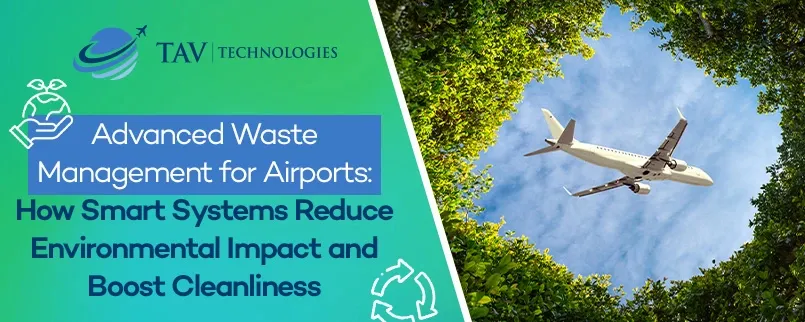
Aug 2024
Airports are bustling hubs of activity, accommodating millions of passengers and handling vast amounts of cargo daily. This constant flow of people and goods generates significant waste, making effective waste management a critical concern. Traditional waste management systems often struggle to keep up with the volume and complexity of waste generated in such environments. Smart waste management systems are innovative technologies designed to reduce environmental impact and improve cleanliness in airports.
The Need for Smart Waste Management in Airports
Airports produce diverse waste, including food waste, packaging, paper, and hazardous materials. Inefficient waste management not only affects the cleanliness of the facility but also contributes to environmental degradation. Traditional methods often rely on manual collection and disposal processes, leading to inefficiencies and increased operational costs. Furthermore, improper waste handling can result in regulatory fines and damage to an airport's reputation.
How Smart Waste Management Systems Work
Smart waste management systems leverage advanced technologies such as IoT (Internet of Things), AI (Artificial Intelligence), and data analytics to streamline waste collection, sorting, and disposal processes. IoT-enabled waste bins have sensors that monitor fill levels in real-time. When a bin nears capacity, it alerts the waste management team, ensuring timely collection and preventing overflow. AI and machine learning technologies analyze waste patterns and predict peak times for waste generation. This predictive capability allows for optimized waste collection scheduling, reducing the need for emergency cleanups and lowering operational costs. Smart systems can automatically sort recyclable materials from general waste, improving recycling rates and reducing the amount of waste sent to landfills. Automated sorting minimizes the labor required for manual sorting and enhances the accuracy of waste separation. Comprehensive data analytics provide insights into waste generation trends, helping airports implement targeted waste reduction strategies. This data-driven approach ensures that waste management practices are continually refined and improved.
Benefits of Smart Waste Management Systems
- Environmental Impact: Smart waste management systems significantly reduce airports' environmental footprint by optimizing waste collection and improving recycling rates. Efficient waste segregation minimizes the amount of waste ending up in landfills, reducing greenhouse gas emissions.
- Cost Efficiency: Automation and data-driven strategies lead to more efficient resource use, reducing the need for manual labor and operational costs. Predictive analytics help with better planning and resource allocation.
- Enhanced Cleanliness: Real-time monitoring and timely waste collection ensure that airport facilities remain clean and pleasant for passengers and staff. This improvement in cleanliness enhances the overall passenger experience and supports the airport's reputation for high standards.
- Regulatory Compliance: Smart systems ensure that waste management practices adhere to environmental regulations, avoiding fines and legal issues. Accurate data tracking and reporting simplify compliance with regulatory requirements.
Innovative Airport Successes
Several airports worldwide have successfully implemented smart waste management systems, showcasing their effectiveness. Changi Airport in Singapore, known for its innovation, uses smart bins equipped with sensors to manage waste efficiently. The system has significantly reduced waste overflow incidents and improved recycling rates. Similarly, Heathrow Airport in London has integrated AI-driven waste management solutions, resulting in better waste segregation and a notable reduction in waste disposal costs.
Future Outlook
Adopting smart waste management systems in airports will grow as technology advances and sustainability becomes an increasingly important focus. Future developments may include more sophisticated AI algorithms for even better waste prediction and management and enhanced integration with other smart airport systems for a holistic approach to sustainability.
